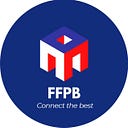Blockchain Helps Musicians Getting a Fair Pay
The most popular way to discover and listen to music nowadays is undoubtedly streaming platforms. Nevertheless, their payment system doesn’t provide musicians with equitable royalty payments. Apart from it, artists constantly face many more problems: counterfeit tickets, expensive go-betweens, inability to establish a point of origin for music creators. The entire music industry needs to be re-established and managed fairly and transparently. And blockchain is the technology that can do it.
Blockchain’s potential in the music industry is enormous. Blockchain’s database allows storing all kinds of information needed for intellectual property rights management: complete information about a song, ID’s, acknowledgments, business partners, and payment mechanisms. It ensures that artists receive credit for their original works. Besides, the technology can trace music streams and instantly pay all artists who recorded songs or albums, thus streamlining royalty payments.
One of the possible solutions for the problem of third-parties involvement is issuing a special coin to purchase music. The trade is made directly, and artists will receive all streaming revenue.
Another option to tackle this problem is smart contracts, which may cover all the points related to artists` earnings, thus eliminating the need for intermediaries.
Some blockchain-based platforms not only ensure that musicians get fairly paid but go further by letting them get extra revenue with advertisements attached to songs. Each ad may bring the artist and the listener up to 90% of its cost.
Blockchain Levels Up an Engagement With Music Fans
Some platforms feature fan-to-artist crowdfunding. Fans can sponsor their favorite musicians directly and even get rewarded with the royalties earned from the recordings. Proprietary blockchain technology allows it to collect royalties from all performing rights organizations and easily track their distribution between fans and artists.
Have you ever heard of getting paid for creating playlists? On some platforms, fans can receive a share of royalties for that as it helps to spread music throughout the platform. It allows listeners to discover music while supporting the artists to gain wider recognition without additional tools.
Blockchain’s Secure Tickets’ Purchase
Blockchain’s database allows sharing information across different applications and organizations and manages millions of crowdsourced data points to provide listeners with the latest updates on their favorite musicians, venues, festivals, and events. Fans have an opportunity to keep up with the recent news and at the same time engage with their favorite artists in the same place. Moreover, some platforms reward community members with exclusive artist content and promotional incentives.
Every year the music industry holds thousands of events, and large audiences gather to watch their idols performing live. Millions of tickets are purchased. The latter represents one more major difficulty that the industry has to deal with — fraudulent tickets and scalping.
Though the ticketing industry has evolved for years, it still needs improved price control and rights management. The secondary market is a big issue that undermines the whole ticket market.
Blockchain offers a solution to these problems by ensuring traceability, authenticity, and fair pricing.
Blockchain encryption allows purchasing tickets securely. Smart contracts tackle the problem of rights management by enforcing business rules and thus letting the ticket issuer have control over their tickets.
Through blockchain, venues can learn more about the attendees of their shows, not just about the ones who bought the tickets. It improves the overall ticketing experience and helps organizers establish direct communication with their visitors and keep them up with the latest news.
Blockchain, Music, and The Pandemic
Since the pandemic broke out, the performing arts industry has faced a new challenge: many venues shut down, waiting for a solution that would let them host at least small-scale outdoor performances.
Events and performances must be socially distant, and the ticket distribution must be secure to meet new health and safety measures.
Leveraging blockchain technology can offer contactless digital ticketing, which minimizes in-person interactions and is safer for visitors and employees. It’s a must-have for performing arts venues since issuing tickets remotely lets the venues reopen safer and stay alive not only by virtual programming but by staging outdoor in-person performances.
There are many ways blockchain technology could be beneficial for the music and performing arts industry. Nowadays, we can see how it is already changing how these industries operate, improving performers’ and fans’ lives.
